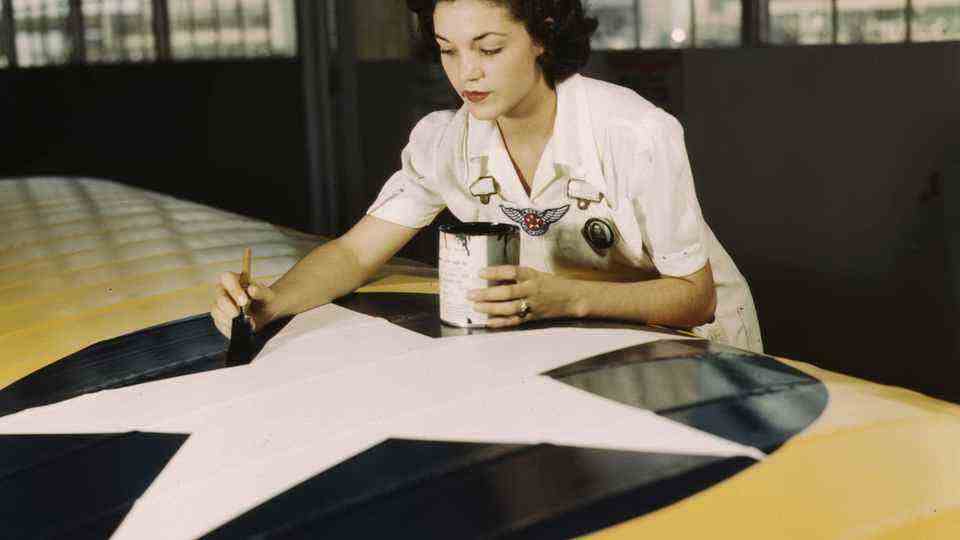At the age of 112
“Man of great faith and a gentle spirit”: Oldest US World War II veteran dies
Lawrence Brooks, the oldest veteran of World War II, died at the age of 112. His life was marked by racism.
© Gerald Herbert / AP Photo / Picture Alliance
It was a long and eventful life: Lawrence Brooks died at the age of 112 as the oldest veteran of the Second World War. The war and racism in the USA shaped him – until the end.
Lawrence Brooks was the oldest US World War II veteran. He has now died in his hometown of New Orleans at the age of 112. This was announced by the National WWII Museum, for which Brooks gave tours to the last and told of his experiences as part of the US Army. The war and the ubiquitous racism in the USA shaped him to the end. He was a “man of great faith and a gentle spirit,” “who inspired everyone around him,” said the museum.
An eventful life shaped by racism
Brooks was born in 1909 as one of 15 siblings in the US state of Louisiana and grew up in Mississippi. He couldn’t go to school because it was too far from his parents’ home. In his youth he started working in a sawmill until he was drafted into the military in 1940.
After the Japanese attack on the American port of Pearl Habor in Hawaii in 1945, he was stationed with the largely Afro-American 91st Engineer Battalion in Australia, New Guinea and the Philippines. At that time, segregation was ubiquitous in the army: “We had our tents and the whites had their tents. They were right next to each other,” said Brooks, as reported by the Army Times.
Nevertheless, both groups were strictly separated from each other. It was even forbidden to eat together at the same table, according to Brooks. In Australia alone he experienced a freedom that he did not know as a black: “I was treated so much better in Australia than by my own white people. I was amazed at that.”
During his military service, Brooks was used as a driver and cook. In addition, his battalion built bridges, roads and runways for aircraft, as reported by the Army Times.
Even if he was not on the front line during this time, he experienced several life-threatening situations: “On a supply flight between Australia and New Guinea, an engine of the machine failed in the middle of the ocean. While Brooks and his comrades dropped the cargo, to compensate for the reduced propulsion, he yelled at the two pilots of the plane: ‘You’re the only two who have a parachute. If you get away, I’ll hold the position. ” The pilots stayed and managed to land the machine without injuring anyone, the National Public Radio reports, citing the National WWII Museum.
No bonus for black veterans
After leaving the army in 1945, Brooks started a family. He actually wanted to study medicine, as the university costs for war veterans were reimbursed by the state – but only for whites. African American soldiers were exempt from this fee waiver. So he had to abandon his plan and worked as a forklift driver to support his family. Until he retired almost forty years later.
For the past 13 years, his daughter Vanessa Brooks has cared for him and looked to restore his keepsakes and military honors lost during Hurricane Katrina. She too was disappointed at how little support her father had received from the state over the years just because he was black: “My father received the Good Conduct Medal and the Meritorious Service Medal. After that, he was left behind.” Like others, her father served for five years. He was also bombed and shot at, but he was not offered a low-interest bank loan or a reduced down payment for a home or education, as is common with white veterans.
Lawrence Brooks wanted to be buried in his uniform
As reported by NPR, Brooks’ physical condition has deteriorated significantly in the past few months. Although he was mentally very healthy until the end, his body became more and more frail.
Last November, Vanessa managed to get hold of a true-to-the-original uniform from World War II, such as Brooks himself had worn during his service. His last wish was to be buried in this uniform.
When asked what his secret to a long and healthy life was, Brooks always replied: “Be nice to one another”.
Sources: National Public Radio, Army Times, Fox32 Chicago, with material from AFP


